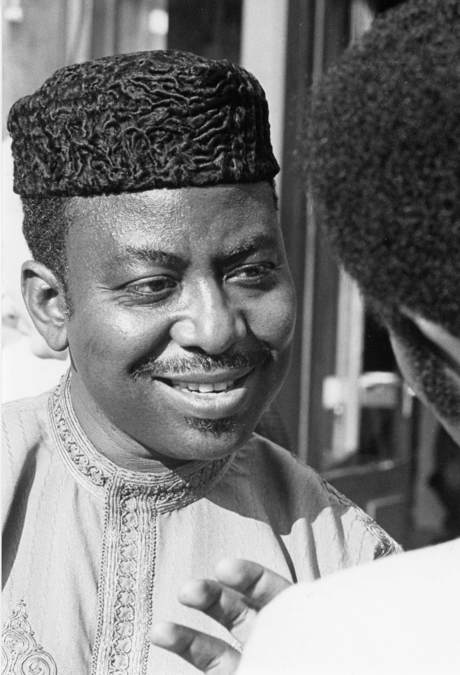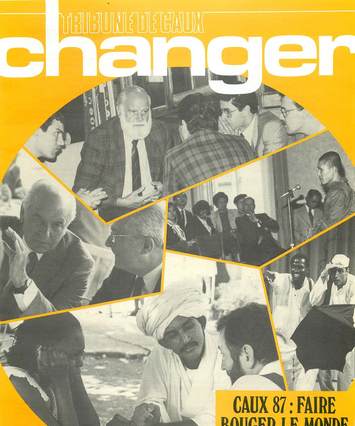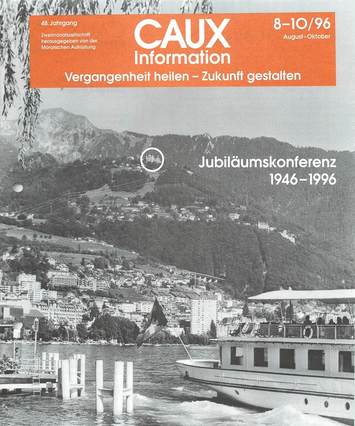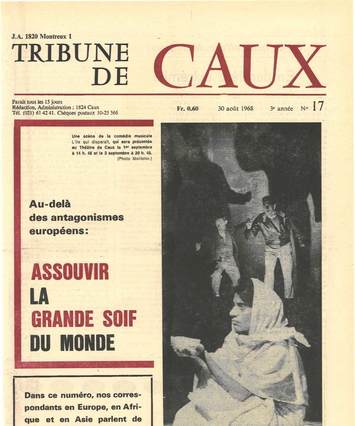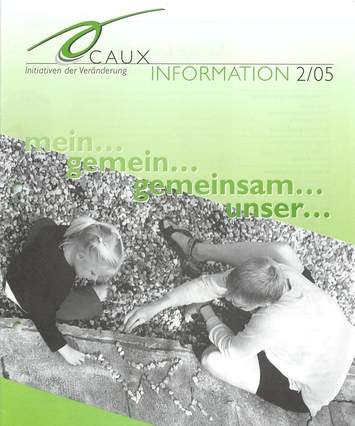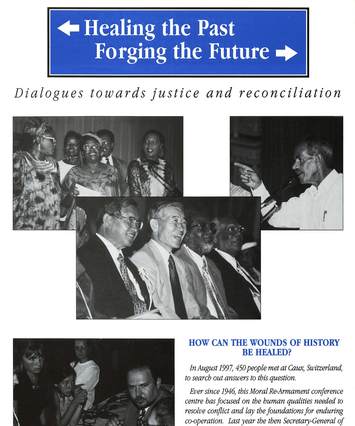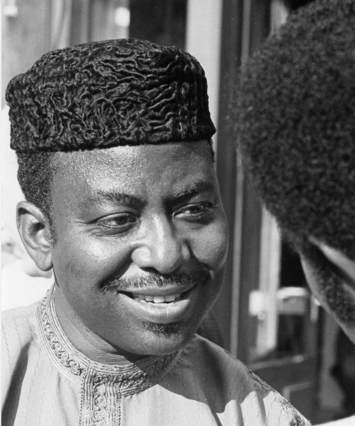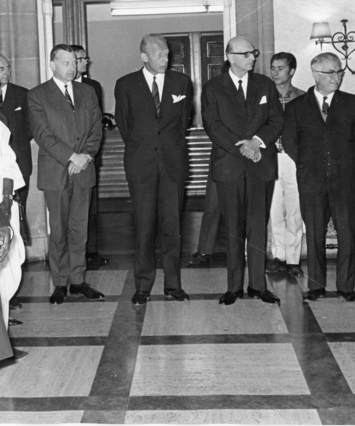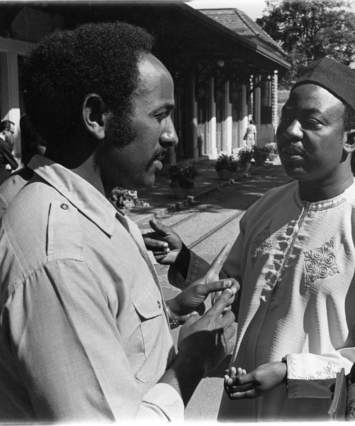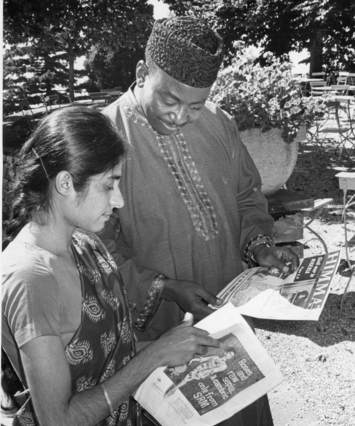Alhaji Ado Bayero made history by becoming the youngest Emir of Kano in 1963 at the age of 33. He was the 56th ruler since Bagauda, first king of the Habe Dynasty, who ruled Kano for 64 years from 999 AD and is credited with laying out the present city. The Emir's people, the Fulani, emigrated from north Africa and established Muslim rule in 1807. Educated in Arabic studies, administration and agriculture, Ado Bayero worked as a clerk with the Kano Native Authority and the Bank of West Africa in pre-independence Nigeria. In 1956, widely respected for his clarity of thought and purpose, he was elected to the Northern House of Assembly. But he relinquished this position when he took over from his brother as Chief of Native Authority Police.
In 1962, two years after Nigeria's independence from Britain, he was appointed Ambassador to Senegal. But, to his disappointment, his diplomatic career was cut short when he was named Emir the following year.
In 1987, following religious violence in the neighbouring state of Katsina, he hosted a conference organized by Moral Re-Armament which aimed to foster better understanding between the largely Muslim north and the predominantly Christian south of Nigeria. The Emir spoke from the same platform as the retired Bishop Kale of Lagos and the Anglican Bishop of Kano.
As emir, he became a patron of Islamic scholarship and embraced Western education as a means to succeed in a modern Nigeria. He was a vocal critic of the terrorist group Boko Haram and strongly opposed their campaign against western education. In 2013, he survived an assassination attempt blamed on the Islamist group which left two of his sons injured and his driver and bodyguard dead, among others.
Bayero was the longest-serving emir in Kano's history. He was seen as one of Nigeria's most prominent and revered Muslim leaders who was a successful businessman and had worked as a banker, police officer, MP and diplomat.

